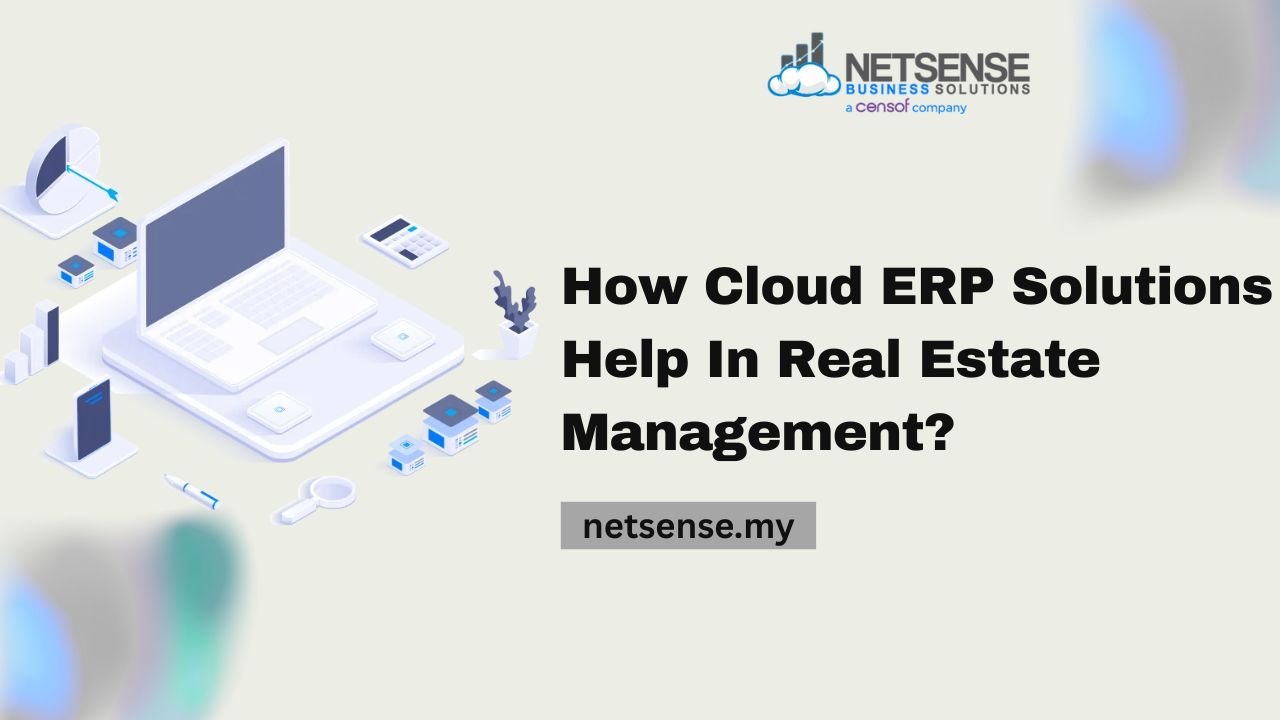Managing any real estate company is a complex task. Doing property listings and lease write-ups, project managing, and accounting are just a few examples of the vast array of tasks that all have to be managed actively within a typical real estate company. Along with all the tasks that are part of running a real estate business, companies encounter several challenges along the way. That’s why businesses are shifting towards cloud ERP solutions in Malaysia.
ERP systems (Enterprise Resource Planning) integrate various business functions into a comprehensive program. Cloud ERP solutions provide all the same functionalities as ERP systems but also access to all the linking processes over the internet. When real estate companies adopt a cloud ERP solution, they ultimately improve overall control, business operation efficiencies, and client satisfaction. So, our blog has enlisted the top ways in how using robust ERP software is beneficial for companies in the real estate industry.
Centralized Data Management
One major benefit of cloud ERP in real estate is putting everything in one central place. All tenant information, property documents, leases, and financial information in one secure cloud-based platform. There is no need to worry about managing different software systems or separate spreadsheets.
With a single source of real-time data, there is less chance of error or miscommunication among team members. Agents and finance teams can work more effectively with managers and others, resulting in better operations and faster decision-making.
Improved Property and Lease Management
Property management involves handling property maintenance, rent collection, tenant communication, and lease renewals. Cloud ERP simplifies all of these tasks.
- With built-in property and lease management features, real estate businesses can:
- Track property availability in real time.
- Automate rent collection and late fee reminders
- Get alerts for lease expiration dates.
- Maintain digital records of all leases.
These tools help reduce administrative workload and improve customer satisfaction, as tenants receive timely communication and better service.
Financial Control and Reporting
Real estate businesses deal with high-value transactions and large amounts of financial data. Managing finances manually or using basic tools increases the likelihood of mistakes and missed opportunities. A cloud ERP can provide full visibility over every aspect of financial processing from budgeting and payroll to payments and receivables.
Powerful dashboards with automated reporting can help you:
- Monitor cash flow and profitability
- Record expenses by property or project
- Create tax and compliance reports
- Make financial decisions based on data
Gaining this level of financial clarity guarantees better investment decisions and avoids mistakes that would be costly.
Streamlined Project Management
Often, real estate development projects are complex and involve strict timelines and budgets. Therefore, Cloud ERP provides project management features (among other aspects) to assist development teams in planning, tracking, and administering projects more effectively.
You can:
- Set project timelines and track milestones.
- Allocate your resources and manage labor costs.
- View your budgets in real time.
- Identify delays or cost overruns early.
Being proactive with your project management will have a positive contribution to avoiding project delays and cost overruns. Ultimately, this leads to a timely project completion, and the potential for increased profits.
Scalability and Mobility
As your real estate operations expand, your software will need to keep pace with that growth. Cloud ERP solutions are very scalable, and enable you to add additional users, more functionality or locations as your real estate business scale.
Furthermore, with cloud access, your teams can work whenever and wherever they choose, at a construction site, meeting with a client or at home. This mobility fosters your business to be more agile and responsive.
Why Netsense’s Acumatica Cloud ERP Software is Ideal for Real Estate?
Acumatica cloud ERP software is the right solution to managing a real estate company.
It is convenient, scalable, and fully cloud-based. Acumatica offers modules for financials, CRM, property management, and project tracking. All of these modules are connected in a single and robust system. Real estate teams can work simultaneously in real time and from different locations and devices.
With Acumatica, real estate firms can achieve efficiencies, lower costs, and enhance profits while providing exceptional service to their customers.
In the End
The market for ERP providers is crowded and finding the right cloud ERP software for your real estate company is not easy. Fortunately for real estate companies, especially in rapidly digitalizing markets like Malaysia, there is now Acumatica cloud ERP software.
Real estate companies in Malaysia that are competing for growth and staying relevant in the busy property market are choosing digital solutions to improve efficiencies. Cloud ERP solutions provide manpower and the tools organizations need to operate smarter, solve fast-evolving market changes, respond to local rules and regulations, and offer superior client experiences as they develop more smart and sustainable buildings.
So, if you are ready to transition your real estate business with the right digital tools, Netsense is the all-in-one provider of your digital transformation services. We provide all the IT solutions, including ERP software, CRM, HR software, accounting, business intelligence tools, and more all focused on your business needs.
Acumatica is user-friendly, complete, easy to scale, and fully cloud-based. It offers integrated modules for financials, CRM, property management, and project management (amongst others). Acumatica also allows real estate teams to work in real-time collaboratively, using any device, with support from different locations.
Acumatica enables real estate companies to be more effective, reduce costs, and increase profits, while also improving their customer service.
